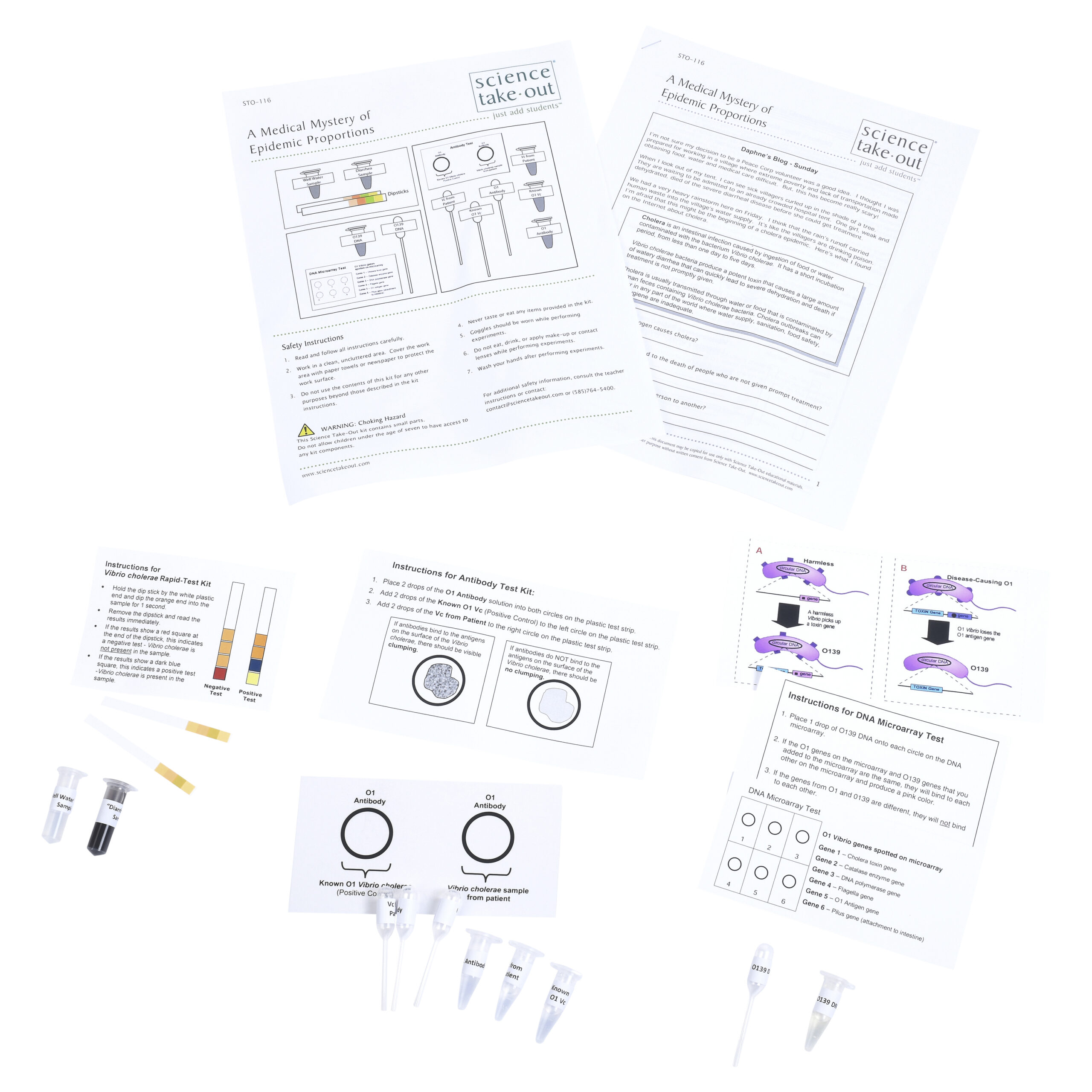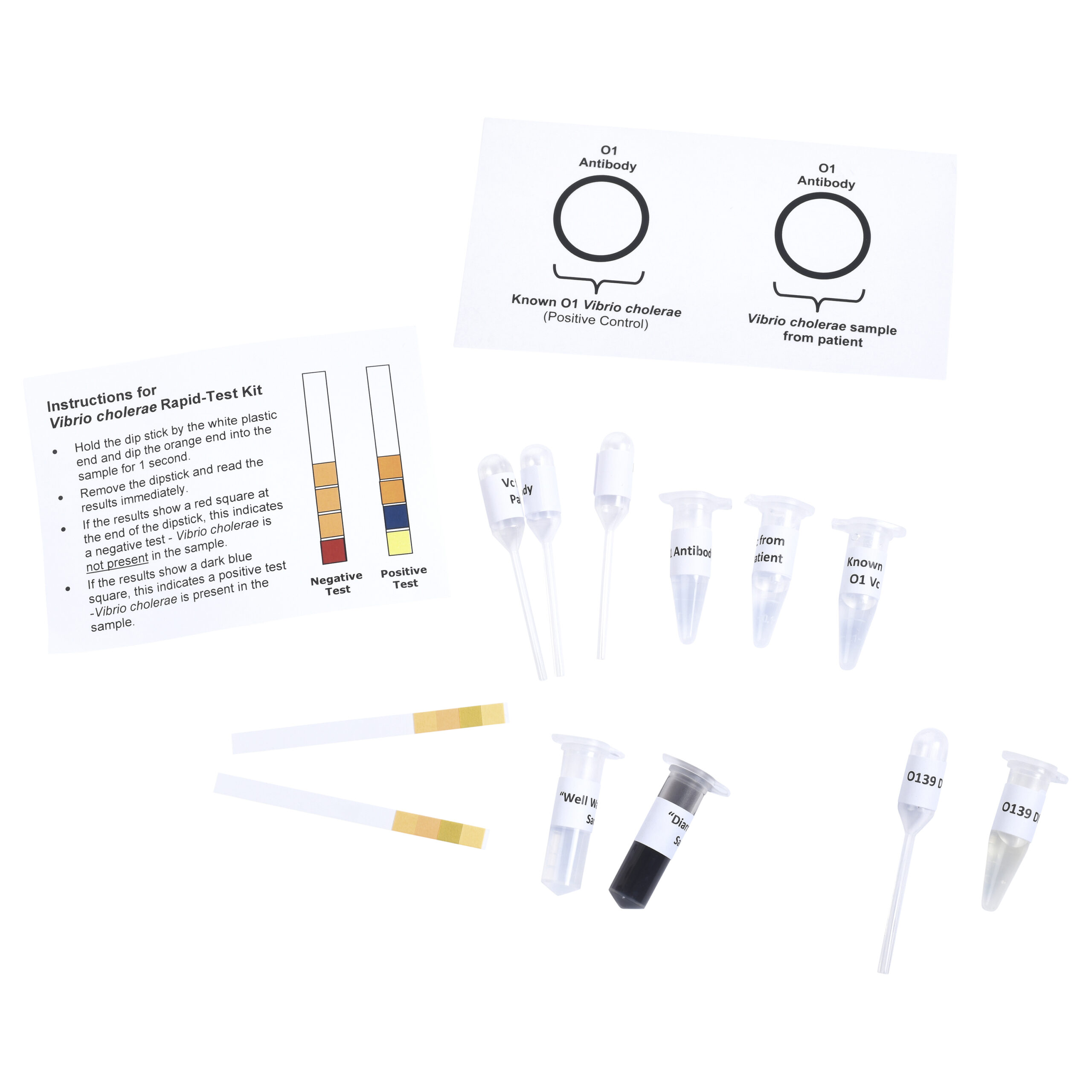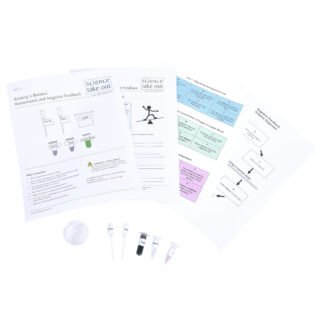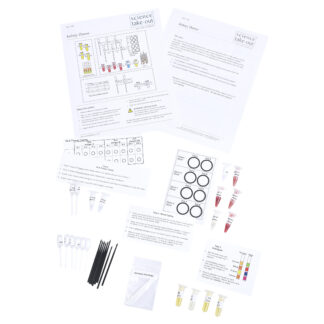A Medical Mystery of Epidemic Proportions
$18.95 – $132.95Price range: $18.95 through $132.95
Quantity Discounts Available! →
Is this epidemic caused by a new strain of bacteria?
Explore a real-life case study about a cholera epidemic. Why are people who have been vaccinated against cholera getting sick?
- Conduct laboratory tests to identify the disease-causing organism.
- Determine why people who have had cholera or been vaccinated do not have immunity.
- Develop a plan for preventing the spread of cholera.
Kit Includes
- Student instructions
- 2 dip sticks for simulated cholera testing
- Simulated “Diarrhea”
- Simulated “Well Water”
- Simulated “O1 Antibody”
- Simulated “Known O1 Vc” and “Vc from Patient” samples
- Antibody Test strip
- Simulated DNA microarray
- Simulated “O139 DNA”
Quantity Discounts
Kits:
- 1 – 9 kits: $18.95 each
- 10 – 24 kits: $18.00 each
- 25+ kits: $17.06 each
Unassembled:
- 1 – 9 packs: $132.95 each
- 10+ packs: $126.30 each
Refills:
- 1 – 9 packs: $62.95 each
- 10+ packs: $59.80 each
Correlation to Next Generation Science Standards (NGSS) Shop by NGSS »
Performance Expectations:
MS-LS1-3. Use argument supported by evidence for how the body is a system of interacting subsystems composed of groups of cells.
Science & Engineering Practices
Analyzing and Interpreting Data - Analyze and interpret data to provide evidence for phenomena
Disciplinary Core Ideas
LS1.A: Structure and Function - In multicellular organisms, the body is a system of multiple interacting subsystems. These subsystems are groups of cells that work together to form tissues and organs that are specialized for particular body functions.
LS3.B: Variation of Traits - In sexual reproduction, chromosomes can sometimes swap sections during the process of meiosis (cell division), thereby creating new genetic combinations and thus more genetic variation. Although DNA replication is tightly regulated and remarkably accurate, errors do occur and result in mutations, which are also a source of genetic variation. Environmental factors can also cause mutations in genes, and viable mutations are inherited.
Crosscutting Concepts
Systems and System Models - Systems may interact with other systems; they may have sub-systems and be a part of larger complex systems.





